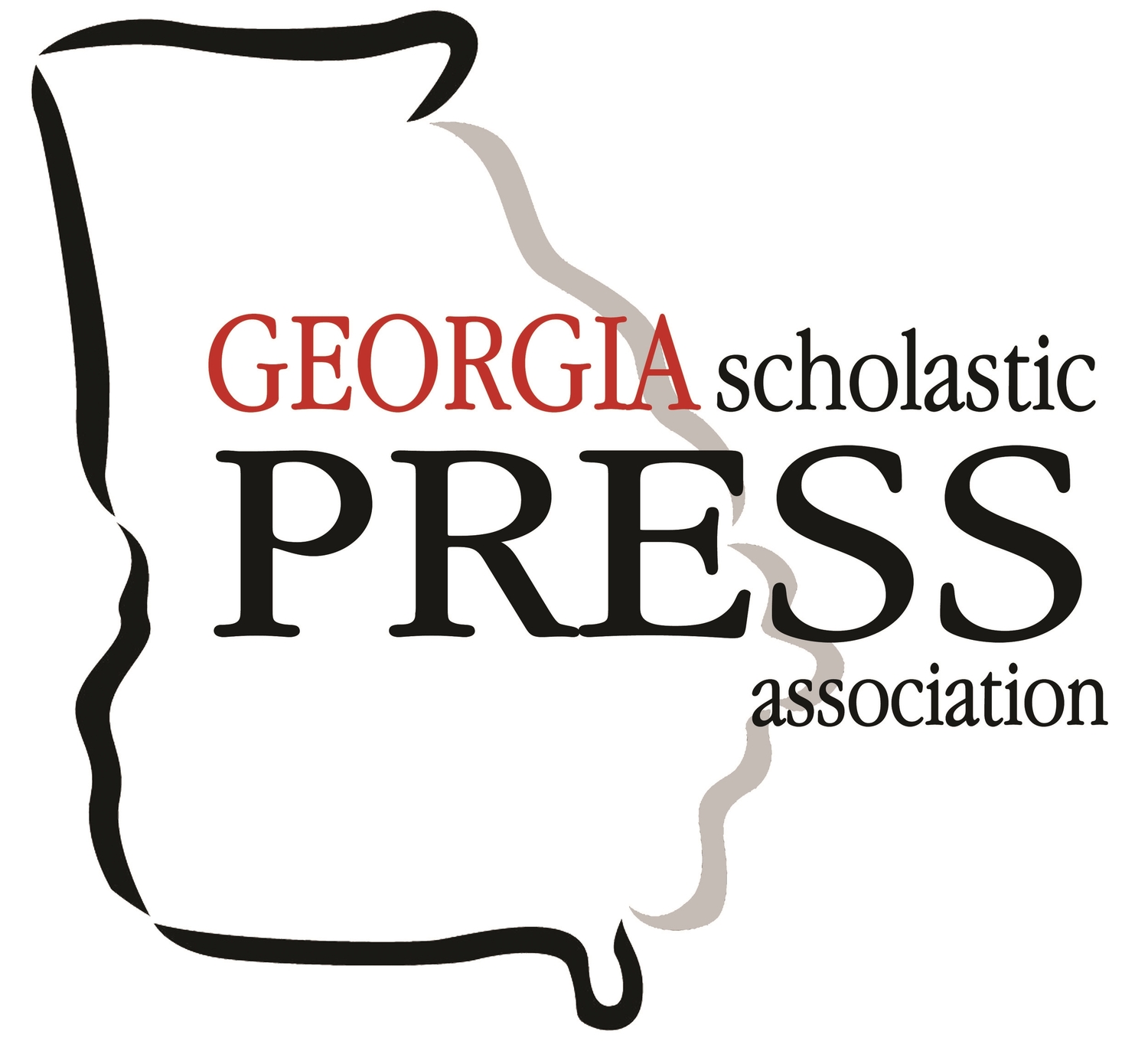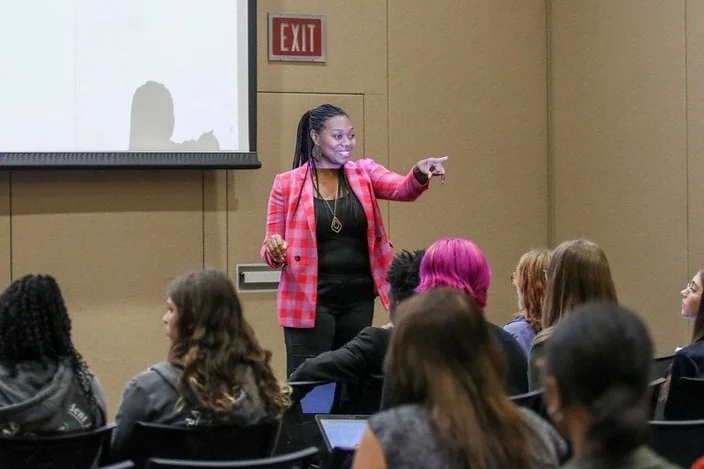Conference sessions help journalists realize why their work matters
/By Alex Taylor, GSPA Ambassador, Union Grove High School, Wolverscenes Yearbook
More than 800 students and teachers from 44 schools around georgia attended the conference.
Hosted within the walls of the University of Georgia’s Tate Student Center, the Georgia Scholastic Press Association held its 2023 Fall Conference on Oct. 24. With around 800 passionate student journalists and teachers visiting, the conference immersed its attendees in a variety of informative sessions, as well as aided their publications with on-site critiques.
The topics of these sessions ranged from marketing and college admissions, to artificial intelligence and sustainable storytelling. There was never a dull moment. Between sessions, guests visited the digital photobooth along with interactive tables that gifted them with both prizes and journalistic knowledge. Additionally, attendees could take part in on-the-spot photography and social media contests.
Dr. Denetra Walker leads a session at the Fall Conference.
The theme for the conference was “Momentum,” highlighting how journalists continuously work toward new goals and move forward with their current ones. Malachi Umeh, a senior at North Cobb High School, attended the conference. As a student journalist, Umeh said he keeps his momentum by reminding himself of where he is going. Journalism is no easy job: problems often arise when working to complete a story. That is why journalists must adapt to the situations they face and find innovative ways to finish their project. But as the theme suggests, when one task is completed, journalists are on the hunt for a new one.
Umeh was one of many students that hoped to gain expertise on how to impact people as a writer and journalist. He said his favorite session at the conference was “Using Your Voice For Good: Ethical Considerations for Race and Diverse Topics in the Digital Age,” presented by Dr. Denetra Walker, an assistant professor at UGA. “It deep-dived into how perspective changes the whole story and how, as a news writer, it’s your job to get all of the perspectives…I feel like that’s important,” Umeh said.
Gwen Childers of herff jones speaks with students in between sessions.
A common topic among the sessions at the conference was how journalists have the means to affect people with their work. Presenter Gwen Childers, a Herff Jones yearbook representative, especially wanted to focus on this subject. In her session, “Grandpa, Spiderman, and Me — Wield Your Yearbook Power and Responsibility,” she emphasized how student journalists, specifically those on the yearbook staff, have the ability to make people feel like they matter. “A school that doesn’t put a lot of writing in their book might not win awards…but if they put a lot of people in the book, then that’s the best award because they’re making people feel important,” Childers said. Recognizing your influence as a journalist is essential to creating meaningful work. Because of this, it is easy to understand why so many speakers wanted to incorporate this principle into their presentations.
Conferences like these are effective because visitors can take what they have learned and use it to benefit publications at their school. This was a hope for Josh Dempsey, video and film teacher at Marietta High School. He attended the conference with his students to build a foundation to move forward. “I hope that [my students] made some better relationships with each other,” he said. “By them being able to go into some sessions and learn a few things…maybe we’ll be able to put all those things together to produce a better project for the school and our community.”




